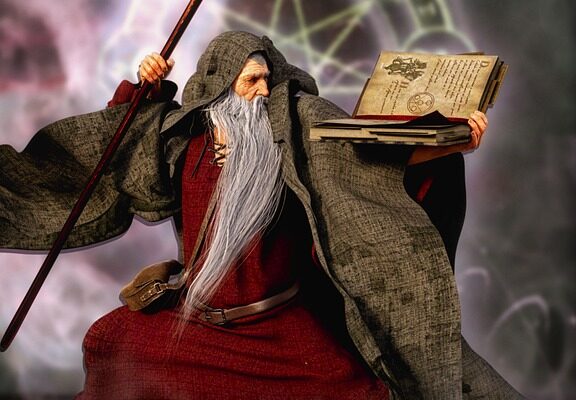The History and Evolution of Wizards in Literature and Pop Culture
Introduction
Wizards have been a staple in literature and pop culture for centuries, captivating audiences with their mystical powers and enigmatic personas. From Merlin to Gandalf, these magical beings have played a significant role in shaping the fantasy genre and capturing the imaginations of readers and viewers alike. In this article, we will explore the history and evolution of wizards in literature and pop culture, from their origins in ancient folklore to their modern interpretations in popular media.
Origins of Wizards in Ancient Folklore
The concept of wizards can be traced back to ancient folklore and mythology, where sorcerers and magicians were believed to possess supernatural powers and abilities. In ancient Mesopotamia, for example, the figure of the sorcerer was revered as a powerful and mystical being who could harness the forces of nature and perform incredible feats of magic. In ancient Greece, the figure of the wizard was associated with the god Hermes, who was believed to be the messenger of the gods and the patron of magic and sorcery.
Medieval Wizards and Alchemists
During the Middle Ages, wizards and alchemists were often depicted as mysterious and enigmatic figures who sought to unlock the secrets of the universe through the practice of magic and alchemy. These practitioners of the occult were often feared and mistrusted by society, but they also held a certain fascination for their ability to manipulate the forces of nature and achieve seemingly impossible feats.
One of the most famous wizards of the medieval period was Merlin, the legendary sorcerer from Arthurian legend. Merlin was believed to possess powerful magical abilities, including the ability to shape-shift and see into the future. His character has since become a beloved figure in literature and pop culture, appearing in countless adaptations and retellings of the Arthurian legend.
The Renaissance and the Rise of Wizardry
The Renaissance period saw a renewed interest in magic and the occult, as scholars and alchemists sought to unlock the secrets of the universe through the study of ancient texts and mystical practices. This era saw the rise of famous figures such as Paracelsus, a Swiss alchemist who was renowned for his experiments with alchemy and his belief in the power of magic to heal and transform.
The Renaissance also saw the popularization of the figure of the wizard in literature, with authors such as William Shakespeare incorporating magical elements into their plays and poetry. Shakespeare’s play “The Tempest,” for example, features the character of Prospero, a powerful sorcerer who uses his magical powers to control the elements and manipulate the world around him.
Modern Wizards in Literature and Pop Culture
In the modern era, wizards have become a ubiquitous presence in literature and pop culture, with iconic figures such as J.R.R. Tolkien’s Gandalf and J.K. Rowling’s Harry Potter captivating audiences around the world. These modern interpretations of the wizard draw on ancient folklore and mythology while also introducing new elements and themes that resonate with contemporary audiences.
Gandalf, for example, is a wise and powerful wizard from Tolkien’s “The Lord of the Rings” series, who helps guide the protagonists on their quest to defeat the dark lord Sauron. Gandalf is depicted as a figure of great wisdom and courage, who uses his magical powers to protect the innocent and fight against evil.
Harry Potter, on the other hand, is a young wizard who learns of his magical abilities and embarks on a journey of self-discovery at Hogwarts School of Witchcraft and Wizardry. Rowling’s series has become a global phenomenon, capturing the hearts of readers of all ages with its captivating story and memorable characters.
Conclusion
The history and evolution of wizards in literature and pop culture is a fascinating journey that spans centuries and continents, from ancient folklore to modern interpretations in popular media. These magical beings have captured the imaginations of audiences around the world with their mystical powers and enigmatic personas, becoming beloved figures in the fantasy genre and beyond.
As we continue to explore the world of wizards in literature and pop culture, we are reminded of the enduring appeal of these magical beings and the timeless themes of power, redemption, and transformation that they embody. Whether they are portrayed as wise mentors or young apprentices, wizards continue to captivate us with their ability to wield the forces of nature and shape the world around them.
